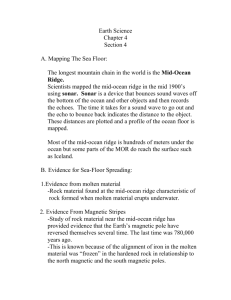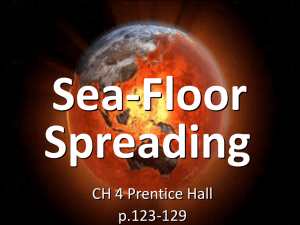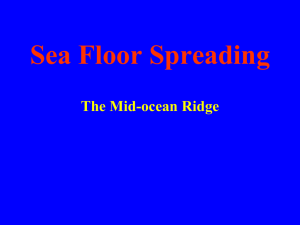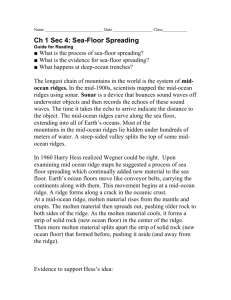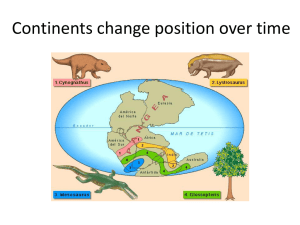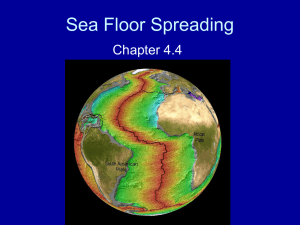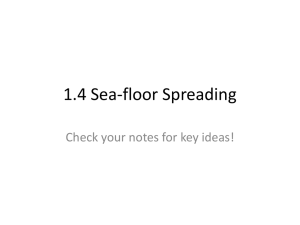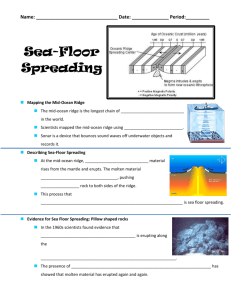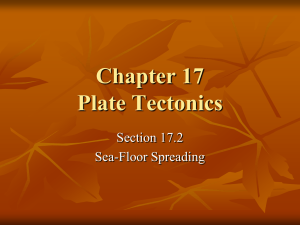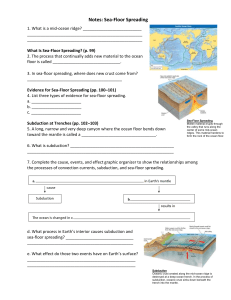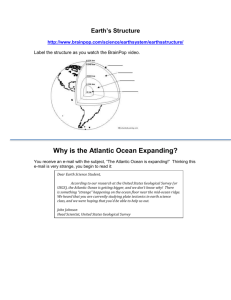Sea Floor Spreading
advertisement
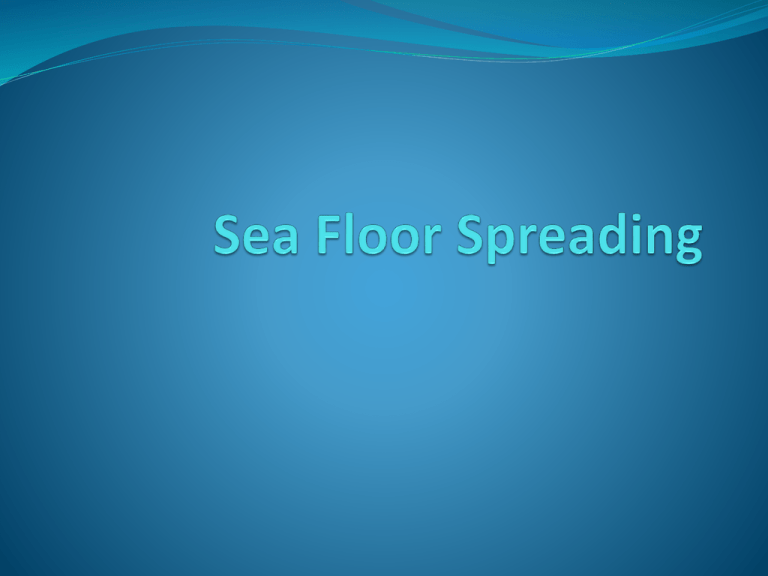
Mid-Ocean Ridges Mid-ocean ridges are an undersea mountain chain where new ocean floor is produced. In the mid-1900’s, scientists begin mapping the midocean ridges using SONAR. Mapping mid-ocean ridges, made scientists more curious. What are these ridges? How did they form? Sea-Floor Spreading In sea-floor spreading, the sea floor spreads apart along both sides of a mid-ocean ridge as a new crust is added. The ocean floor moves like a conveyor belt, carrying the continents along with them. Along these ridges, molten material that has formed several km beneath the surface rises and erupts. As the molten material cools on the ridge, new solid rock is formed, more molten material flows into the cracks and new strips of rock is formed. Evidence of Sea-Floor Spreading • Evidence from molten material • In the 1960’s scientists sent Alvin, a submarine that could withstand the crushing pressures deep in the ocean. • Strange rocks were found. Rocks that looked like toothpaste squeezed from the tube. These types of rock only form when molten rock cools and hardens quickly after erupting. More Evidence of Sea-Floor Spreading Evidence from Magnetic Stripes History shows that the earth’s magnetic field has reversed many times. Rocks that make up the ocean floor reveal this pattern in magnetized stripes. These rocks contain iron. As they cool and harden, the iron lined up in the direction of the Earth’s magnetic field. Evidence from Drill Samples Rock samples from drilling into the ocean floor are the final proof of sea-floor spreading. The Glomar Challenger sent pipes 6 km deep in the ocean to drill hole sin the ocean floor. Scientists found that the farther away from the ridge, the older the rock sample were. Subduction at Trenches Deep-ocean trenches are deep underwater canyons, where the oceanic crust bends downward. SUBDUCTION is a process by which the ocean floor sinks beneath a deep-ocean trench and back into the mantle. It takes about 200 million years for new rock to form, move across the mid-ocean ridge, move across the ocean, and sink into a trench. Did you know the Pacific Ocean is Shrinking and the Atlantic ocean is expanding? Sometimes a deep ocean trench swallows more oceanic crust than a mid-ocean ridge can produce. This is why the Pacific Ocean is shrinking The opposite is happening to the Atlantic Ocean. More oceanic crust is being produced at mid-ocean ridges that the deep ocean-trenches and swallow up.
